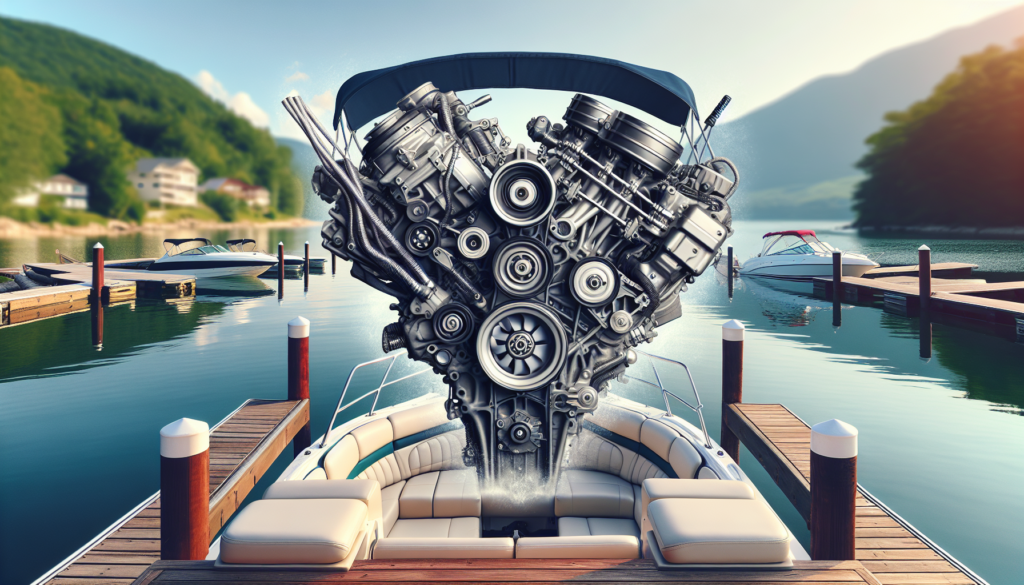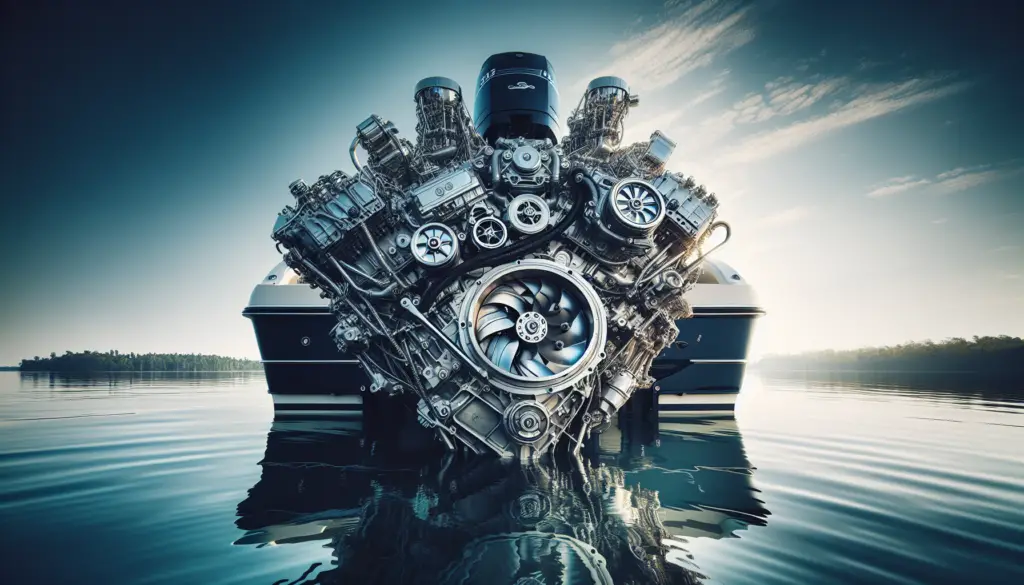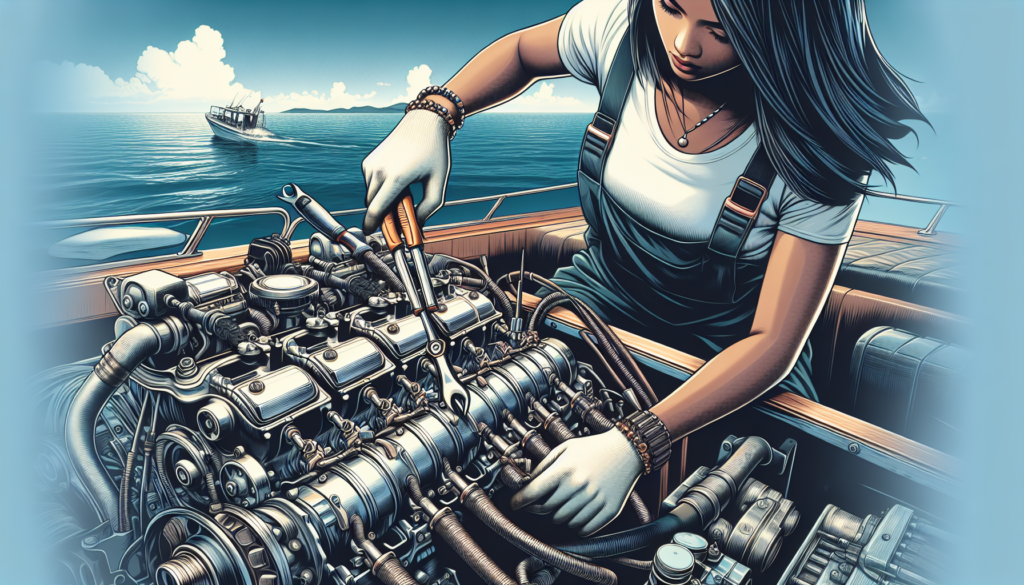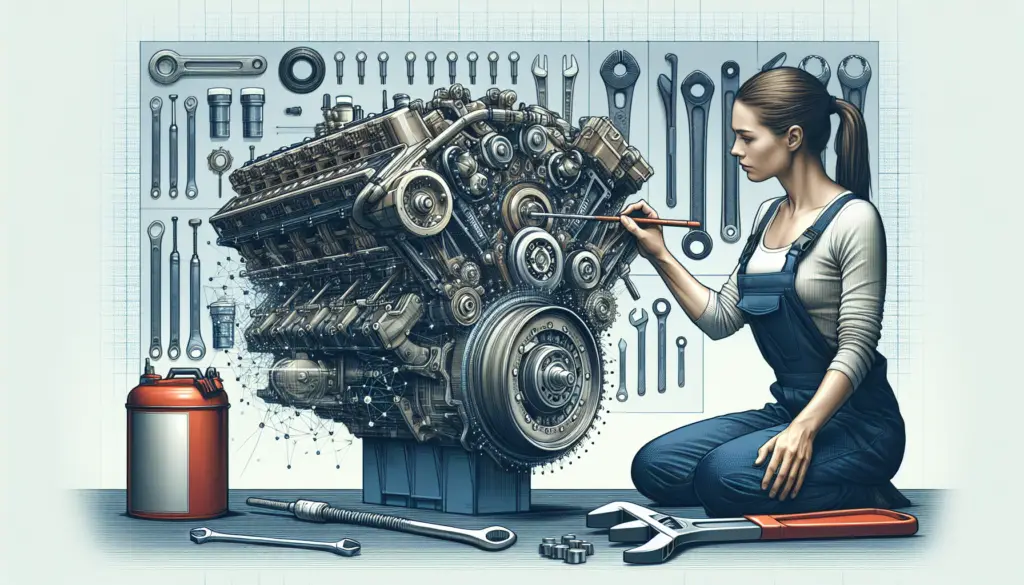Ever imagined coasting through crystal clear waters, sun shining down, wind in your hair, only for that perfect boating trip to be interrupted by engine failure? To avoid this nightmare scenario, learning about the importance of regular boat engine maintenance is crucial. This guide offers an insight into why maintaining your boat’s engine routinely is much more than just an optional exercise. It’s about preventing costly repairs down the road, prolonging the life of your engine, and enjoying smooth sailing – literally!

Understanding the Importance of Regular Boat Maintenance
When it comes to owning a boat, regular maintenance is more than just a mere suggestion—it’s a necessity. As a boat owner, you must understand that your boat isn’t just a luxury, it’s a commitment. This means taking the time to ensure every part is in top shape, particularly the engine.
Comprehending the value of continuous care
Regular boat maintenance is an investment in longevity, performance, and safety. Just like any other vehicle, the care you put in corresponds directly with the life span of the boat. This includes preventative measures, routine check-ups and services. By being proactive with your boat maintenance, you can prevent a lot of issues that might cost you a lot more in the future.
Correlation between maintenance and performance
Ignoring necessary boat maintenance measures can lead to decreased performance. Anything from an unclean engine to a delayed oil change can affect your boat’s speed, maneuverability, and overall functionality. Regular maintenance keeps your boat running smoothly and optimizes its performance.
Reliability and Safety concerns
Aside from enhanced performance, routine boat maintenance significantly contributes to your boat’s reliability and safety. It reduces the risk of unforeseen breakdowns that may lead to accidents or leave you stranded. This is highly essential especially if you’re planning to take your boat out for an extended trip.
The Role of Cleaning in Boat Engine Maintenance
A clean engine isn’t just an aesthetic preference—it can mean the difference between a successful day on the water and a frustrating one.
Significance of a clean engine
Cleaning your boat engine regularly and properly keeps it running efficiently and prolongs its life. It helps in preventing dirt, grime, and salt build-up that can cause corrosion over time. Moreover, it helps in identifying any potential issues such as leaks, cracks, or damages that might need immediate attention.
Possible issues due to lack of cleaning
Lack of engine cleaning can lead to multiple problems. It can cause rust and corrosion, hinder performance, and can even lead to severe engine damages. Ignoring engine cleanliness can eventually take a toll on your wallet as well.
Proper cleaning practices
Cleaning your boat engine requires a keen eye and a gentle hand. Use a soft brush and marine-grade cleaning fluids to gently wash the engine components. A power washer can make cleaning easier but make sure to avoid electrical elements. Always remember that routine cleaning is a crucial aspect of boat engine maintenance.
Regular Inspection of Boat Engine
Inspecting your boat engine is just like providing regular check-ups—essential for ensuring that everything’s running as it should be.
What elements to inspect on a regular basis
Regular boat engine inspection should cover all elements including the oil levels, air filters, fuel system, cooling system and the engine’s cleanliness. Each of these elements plays a vital role in the overall operations of the boat.
The costs of neglecting inspection
Avoiding regular engine inspection can lead you towards many problems such as decreased boat performance, sudden engine failures or expensive repairs. Unexpected engine failures, due to neglecting inspections, can put you and your passengers at risk especially during the boating trips.
How to properly inspect your boat engine
To properly inspect your boat engine, you should familiarize yourself with its elements and their functioning. You should also have a checklist readily available to ensure no part is overlooked. Lastly, when inspecting, make sure to conduct it in a well-lit and ventilated area for better visibility and safety.
Effective Lubrication of Boat Engine Parts
Like any other machine, your boat engine needs lubrication to keep its parts moving smoothly.
Why lubrication is crucial for boat engines
Lubrication reduces the friction among the engine parts, preventing unnecessary wear and tear. Regular and effective lubrication can help your engine run smoother, last longer and perform better.
Impacts of poor lubrication
Poor lubrication can lead to engine overheating, increased wear and tear, and decreased performance. Worst case scenario, it can cause engine seizures, leading to costly repairs or even engine replacement.
Best practices for effective lubrication
Regular oil changes, using the right grade of oil, and checking oil levels on a regular basis are among the best practices for effective lubrication.

Importance of Oil Change in Boat Engines
Just like car engines, boat engines also need regular oil changes to ensure their optimal performance.
Understanding the necessity of regular oil changes
Regular oil changes are crucial because as engine oil ages, it loses its ability to effectively lubricate the moving parts of an engine. The cleanliness and quality of your engine’s oil can dramatically affect how well your boat performs.
Possible problems due to stale oil
Stale or old engine oil can lead to problems like accelerated engine wear, overheating due to increased friction, and reduced engine life. Moreover, it can lead to low oil pressure that can result in engine failure.
Steps for changing boat engine oil
Changing your boat engine oil involves draining the old oil, replacing the oil filter, and then adding new, clean oil. Always refer to your boat owner’s manual for specifics on the quantity and type of oil needed for your engine.
Air Filter Maintenance for Boat Engines
Air filters play an essential role in maintaining the overall health of your boat engine.
The role of air filters in boat engines
Air filters in boat engines ensure that only clean, filtered air makes it into the engine for combustion, free of dust or debris that could damage the engine’s internal parts.
Exceptional problems due to unclean air filters
Unclean or clogged air filters can reduce engine power, cause poor fuel economy, and lead to engine misfires. It can also lead to increased engine wear over time.
Methods for maintaining boat engine air filters
Air filter maintenance should include regular inspections, cleaning, and replacements when necessary. As for cleaning methods, it depends on the type of air filter your engine uses. Some filters are washable while others may need to be replaced.

Check on Boat’s Bilge Pumps
Bilge pumps, while often overlooked, play an essential role in ensuring your boat’s safety and functionality.
Understanding the role of bilge pumps
Bilge pumps are designed to remove excess water from the bilge (the lowest part of the ship’s hull), thereby preventing your boat from sinking.
Issues caused by malfunctioning bilge pumps
Malfunctioning bilge pumps can lead to excess water build-up in the bilge, which can cause stability issues, increase the risk of sinking, and even damage other components of the boat.
Regular maintenance practices for bilge pumps
Regular bilge pump maintenance includes routine checks for both manual and automatic pumps to ensure they are functioning properly. It also includes cleaning the pumps to prevent blockages and testing them on a regular basis.
Cooling System of the Boat Engine
Keeping the right temperature in your boat’s engine is crucial for its optimal performance.
Importance of a well-functioning cooling system
A well-functioning cooling system prevents your boat engine from overheating. Overheating can cause serious damages to the engine including warped cylinders, broken belts, and even engine seizure.
Problems caused by overheating
Overheating can cause a myriad of issues, some of which are irreversible and can render your boat unusable. This includes engine failure, metal fatigue, and decreased engine life.
Maintenance tips for the cooling system
Regular maintenance of your boat’s cooling system should include checking coolant levels, flushing the system, and inspecting the pump for wear-and-tear.

Scheduled Boat Engine Servicing
Routine boat engine servicing done by professionals can ensure all aspects of your boat are well-maintained and highperforming.
Significance of regular professional servicing
Regular professional servicing allows for a thorough inspection, cleaning, and maintenance of your boat engine. It ensures that all parts of the engine are in top condition and it can catch any issues early before they become costly repairs.
Possible setbacks of skipping scheduled service
Skipping scheduled service can lead to cumulative damage and reduced engine life. It also increases the risk of unexpected breakdowns during your boating trip.
What to expect during a boat engine service
During a professional boat engine service, you can expect your engine to be thoroughly inspected, cleaned, and any worn-out parts replaced. The oil and filters may be changed, and the coolant and fuel systems will be inspected.
Conclusion: Holistic Approach towards Boat Engine Maintenance
Throughout this guide, it becomes clear that regular and comprehensive boat engine maintenance is key to a safe and enjoyable boating experience.
Summarizing the importance of regular maintenance
Regular maintenance maintains the health of your boat engine, maximizes its performance, increases its lifespan, and adds to your safety on the water.
Habitual maintenance for longer engine life
Habitual maintenance—cleaning, lubricating, inspecting, changing oil, maintaining filters, checking bilge pumps, managing the cooling system, and scheduled servicing—are proven strategies to prolong your engine’s life.
Link between maintenance behavior and boating experience
Your maintenance behavior not only affects the state of your boat but also shapes your overall boating experience.
In conclusion, every effort you put into maintaining your boat is an investment towards secure, enjoyable, and trouble-free boating. Therefore, remember, when it comes to boat maintenance, a holistic approach is what you need.

